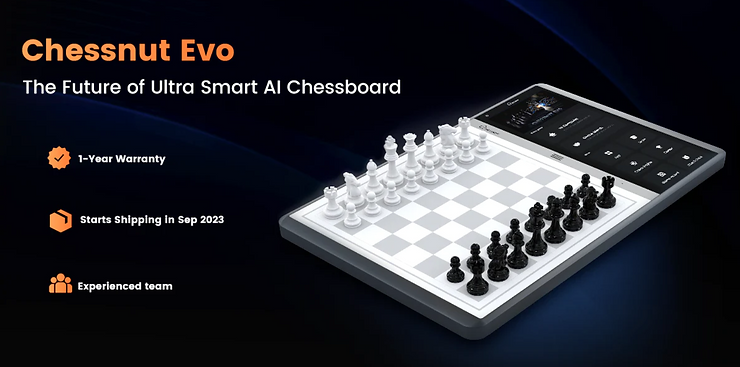The Evolution of Chess: A Deep Dive into Chess AI
- chess nutech

- Dec 1, 2023
- 3 min read
Chess, a game of strategy and intellect, has been captivating minds for centuries. In recent years, the world of chess has witnessed a revolutionary transformation with the advent of Chess AI (Artificial Intelligence). This technological marvel has not only changed the way we play chess but has also redefined the limits of what machines can achieve in the realm of strategic thinking. In this blog post, we will delve into the fascinating world of Chess AI, exploring its history, development, and impact on the game of kings.

The Genesis of Chess AI:
The journey of chess ai dates back to the mid-20th century. The earliest attempts to create a computer program capable of playing chess began in the 1950s. One of the pioneering projects was the creation of the "Turbochamp" by Alan Turing, a legendary figure in the field of computer science. However, it was not until the 1990s that Chess AI truly started to make significant strides.
Deep Blue vs. Kasparov: A Watershed Moment
The turning point in the history of Chess AI occurred in 1997 when IBM's Deep Blue faced off against reigning world champion Garry Kasparov. Deep Blue, a sophisticated supercomputer, made headlines by defeating Kasparov in a six-game match. This historic event marked the first time a reigning world champion lost to a computer under standard chess tournament time controls. The victory of Deep Blue showcased the potential of AI to outperform human grandmasters in the game of chess.
Evolution of Chess Engines:
Following the success of Deep Blue, the development of chess engines accelerated. Today, chess engines like Stockfish, AlphaZero, and Leela Chess Zero employ advanced algorithms, neural networks, and machine learning techniques to play at a superhuman level. These engines analyze millions of positions per second, evaluating potential moves and predicting the best course of action. The constant evolution of these engines has led to an unprecedented improvement in their playing strength, challenging and surpassing even the greatest human players.
Human-Computer Collaboration:
Contrary to the fear of AI replacing human players, the relationship between humans and Chess AI has evolved into a collaborative and educational one. Many chess players, from beginners to grandmasters, use chess engines as training tools to analyze their games, identify mistakes, and explore new strategies. Chess AI has become an invaluable resource for players looking to enhance their skills and understanding of the game.
The Rise of Neural Networks:
Recent advancements in deep learning and neural networks have significantly influenced the capabilities of Chess AI. AlphaZero, developed by DeepMind, made waves in 2017 by mastering chess through self-play and without any prior human knowledge of the game. The neural network-based approach of AlphaZero demonstrated the power of machine learning in creating highly adaptive and creative chess engines.
Impact on Chess Culture:
Chess AI has not only influenced the way the game is played but has also shaped the chess culture. Online platforms with integrated chess engines allow players to compete with AI opponents of varying difficulty levels, providing a personalized and challenging gaming experience. Additionally, the availability of powerful chess engines has led to the development of online communities where players analyze and discuss games, share insights, and collaborate on chess-related projects.
Conclusion:
Chess AI has come a long way since its inception, from early experiments in the 1950s to the powerful neural network-based engines of today. The impact of Chess AI extends beyond the board, influencing how we approach the game, learn, and collaborate. As technology continues to advance, the future of Chess AI holds the promise of further innovation and a deeper understanding of this timeless game. Whether you are a casual player or a seasoned grandmaster, the world of chess has been forever transformed by the fascinating evolution of Chess AI.




Comments